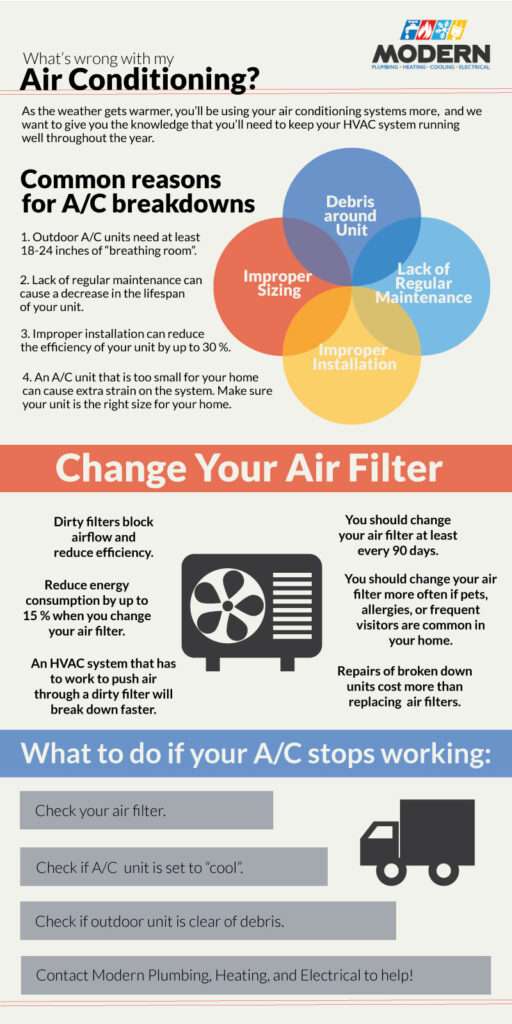In this infographic, we cover the basic tips for keeping your a/c unit running smoothly. Check the common reasons that your a/c might break down. Learn the importance of changing out your air filters regularly. Keep your family comfortable during the summers with a properly working cooling system. And if you ever need help or have concerns about your a/c, give Modern PHE a call.
What’s wrong with my Air Conditioning?
As the weather gets warmer, you’ll be using your air conditioning systems more, and we want to give you the knowledge that you’ll need to keep your HVAC system running well throughout the year.
Common reasons for A/C breakdowns
1. Outdoor A/C units need at least 18-24 inches of “breathing room.” Keep the unit clear of debris so it doesn’t get over heated and have issues running.
2. Lack of regular maintenance can cause a decrease in the lifespan of your unit. Schedule regular A/C unit maintenance with a professional HVAC contractor near you.
3. Improper installation can reduce the efficiency of your unit by up to 30%. Get your A/C unit installed right the first time by finding an experienced professional.
4. An A/C unit that is too small for your home can cause extra strain on the system. Make sure your unit is the right size for your home.
Change your air filter
Dirty air filters block airflow and reduce efficiency. Also, an HVAC system that has to work to push air through a dirty filter will break down fast. And it costs more to repair a broken down unit than to replace your filter.
It’s important to regularly change the filters in your A/C and HVAC units at least every 90 days, and more often if you have pets or frequent visitors in your home.
Fun fact: You can reduce your energy consumption by up to 15% when you change your air filter regularly.
What to do if your A/C stops working
If your A/C unit stops working, we have a few helpful tips to try out:
1. Check your air filter. As per the tips above, this can help get things running smoothly again.
2. Check to make sure the A/C unit is set to “cool.” Most units have a “fan” setting that will just blow air, but unless the unit is set to “cool” you may not be lowering the temperature of your home.
3. Check if the outdoor unit is clear of debris. As mentioned, debris around the unit can cause blockages or overheating.
4. Call a professional HVAC professional to help you out!





